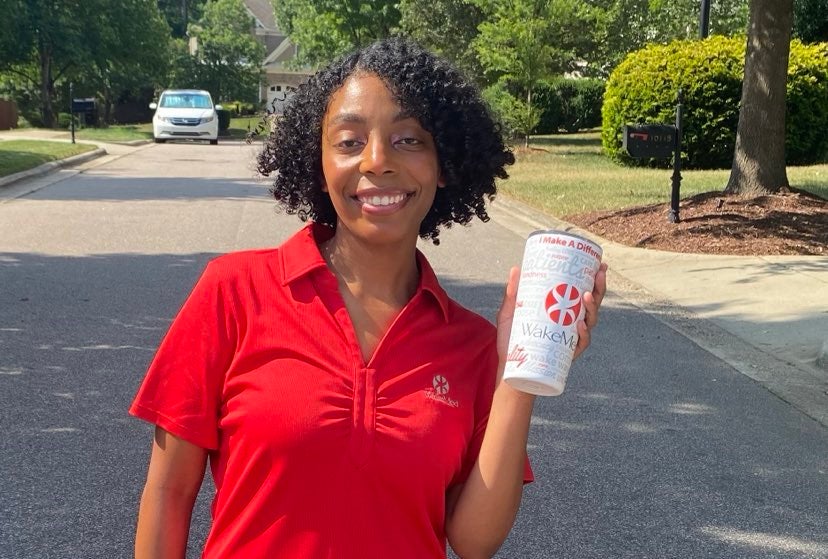Heat and Hydration Help for Summer
July 1, 2024
By: WakeMed Health & Hospitals
Categories: Primary Care, Urgent Care
After a mild few weeks in May, temperatures in NC have risen to soaring sticky, summer heat and humidity. Hot and humid conditions are known to increase your body’s loss of fluids, and proper hydration will ensure that all of your body’s organs continue to function properly.
With several full months of summer left to endure, here’s some expert hydration advice.
Hydration Health – How Much Water Should I Drink?
The average healthy person should drink about 1.5 to 2L (62 to 64 oz.) of fluids daily.
An easy way to remember this is 8-8, or eight 8-oz. glasses of fluids daily. Water is always the best choice because it’s free of calories and inexpensive. However, other sources can contribute to your total daily fluid intake, such as tea, milk, seltzer and other low- or no-calorie drinks.
During a summer heatwave, you should increase your fluid intake by about one and a half to two cups daily. Generally, you should be drinking enough water so that your urine is clear or pale yellow, not dark.
How Do I Know if I’m Dehydrated?
Dehydration occurs when the loss of bodily fluids, mostly water, exceeds intake. Your body loses fluids
- when you become overheated
- due to illnesses associated with excessive vomiting or diarrhea
- due to medications (i.e. diuretics) that increase fluid loss through urination
You can easily check to see if you are dehydrated with a simple Skin Turgor Test. Simply pull the skin up on the top of your hand (between thumb and pointer finger) for a few seconds. If the skin does not quickly return to its original state, this is considered a late sign of dehydration.

Signs & Symptoms of Dehydration
Signs and symptoms of dehydration can be minor to severe and include the following:
- Dark urine
- Muscle cramps
- Dry mouth
- Dizziness
- Confusion
- Heart palpitations
- Fainting
When there is enough fluid loss to cause dehydration, it becomes difficult for the body to carry out normal functions such as urine production and the ability to concentrate. Dehydration can also affect your mood, causing irritability, and can make you feel tired.
How to Prevent Dehydration
In addition to increasing your fluid intake, limit outdoor activities during peak sun exposure (11 am to 3 pm), and wear a hat and cool reflective clothing if you plan to be in the sun for an extended period of time.
Even without heat, activity level, medical conditions, pregnancy, breastfeeding and age can all affect your body’s ability to retain fluids, so drinking plenty of water is always key. Additionally, remember that children and older adults are often more sensitive to dehydration.
Treating Dehydration: When to Seek Medical Attention
If you think you may be dehydrated, stay out of the heat and refrain from sweat-inducing activity until you are re-hydrated.
Increase your water intake and replenish electrolytes with a sports drink or coconut water. Potassium-rich foods can also help with hydration, so try some bananas, raisins, spinach or sweet potatoes. Finally, choosing foods with high water content is another way to stay hydrated – watermelon, celery, cucumbers and baby carrots are great choices.
If an adult is delirious, experiencing confusion or if fainting occurs, seek medical attention immediately.
In a child or infant, extreme fussiness, sleepiness and decreased tears/urine production are all reasons to seek medical attention. Typically, a mild case of dehydration can be treated with oral re-hydration (water, Pedialyte, Gatorade, etc.), rest and moving the person to a cool area. In severe cases, intravenous (IV) hydration may be necessary.
MyCare 365 Can Help
All WakeMed Urgent Care and WakeMed MyCare 365 locations offer comprehensive treatment for dehydration for adults and children, including IV treatment for rehydration if needed.
WakeMed MyCare 365 offers extended hours for primary and urgent care in person via walk-in or appointment as well as via video visits. So, when you don’t feel well or have an urgent need, you can get the care you want.